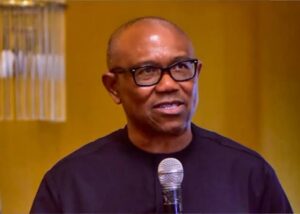
Peter Obi, has commended President Bola Ahmed Tinubu for finally deciding to visit Benue State following the recent brutal killings that claimed hundreds of lives. However, he called on the President to extend the same gesture to Niger State, which recently suffered devastating floods in Mokwa Local Government Area, resulting in over 200 confirmed deaths and more than 1,000 missing persons.
In a statement released on Monday, Obi stressed that the scale of the tragedy in Niger State warrants urgent presidential attention, not delayed visits that appear more ceremonial than compassionate.
“Given the emergency nature of these incidents, prompt visits would have delivered the urgency needed, instead of giving future dates that make it look like a state visit,” Obi said. “The presence of the President in these devastated and grieving communities will be very reassuring and uplifting.”
Obi highlighted the staggering human toll of both disasters, pointing out that these are not mere statistics but real lives and families torn apart. “In Mokwa alone, more than 200 people were confirmed dead, and over 1,000 are still missing following the floods. These are Nigerian families, and their communities have been devastated,” he emphasized.
He compared the distances involved, noting that both Makurdi and Mokwa are less than 300 kilometers from Abuja — a manageable journey for any serious leader. He further cited the recent example of South African President Cyril Ramaphosa, who personally traveled over 1,800 kilometers round trip to visit flood victims in Mthatha, where less than 100 people were killed.
“If the South African President could do it, we trust that you, as our own President, can do the same for your people,” Obi said, urging Tinubu to demonstrate that “all Nigerian lives matter and that no community, no matter how rural, is forgotten.”
He concluded by calling for proactive leadership, not leadership by “remote control,” and urged the government to scale up security measures and emergency response systems in disaster-prone areas.
“A new Nigeria is POssible,” he signed off.




